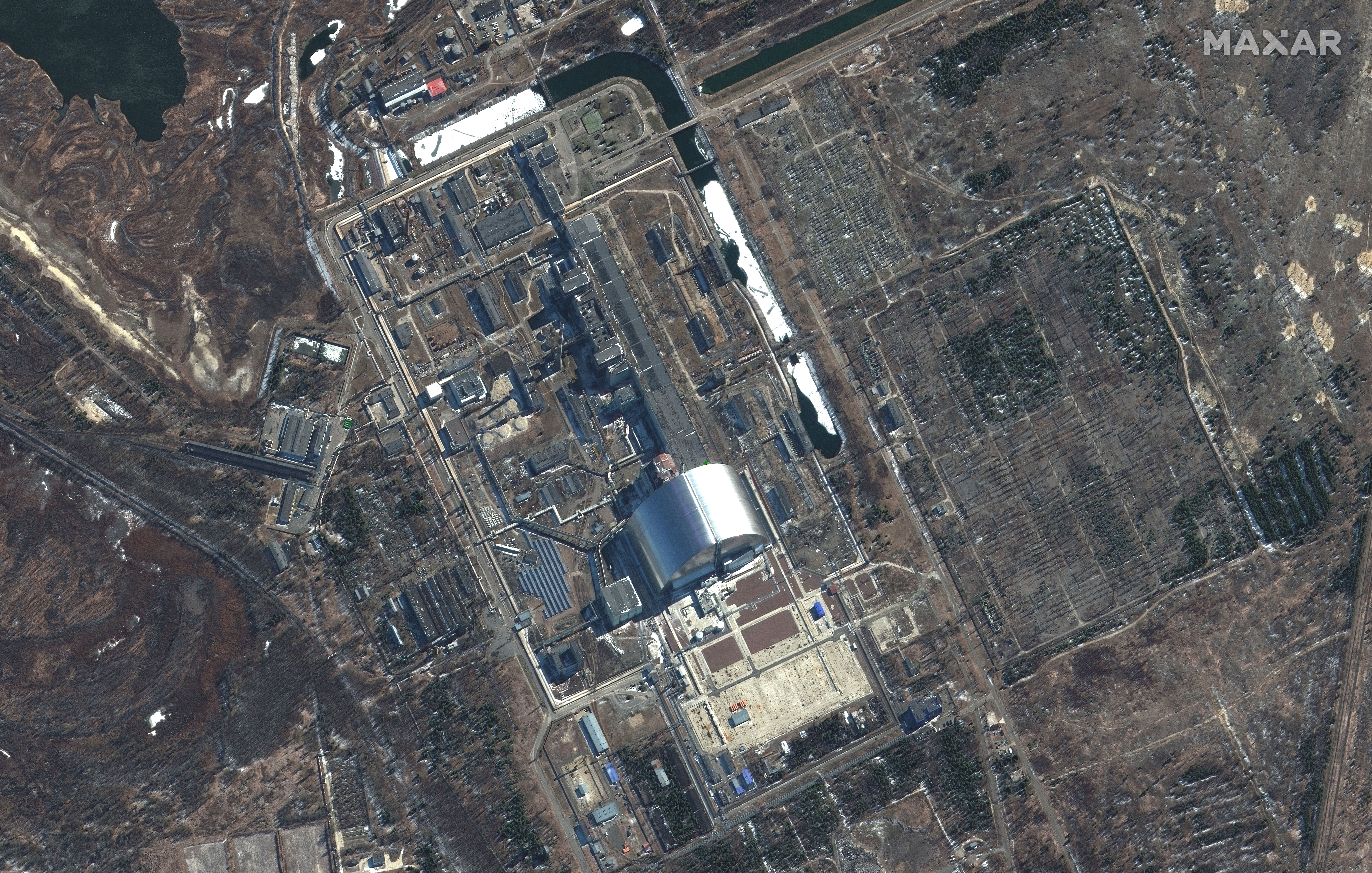Russian troops handed control of the Chernobyl nuclear power plant back to the Ukrainians and began leaving the heavily contaminated site more than a month after taking it over, authorities said, as fighting raged on the outskirts of Kyiv and other fronts.
Ukraine's state power company, Energoatom, said the pullout at Chernobyl came after soldiers received “significant doses" of radiation from digging trenches in the forest in the exclusion zone around the closed plant. But there was no independent confirmation of that.
The withdrawal took place amid growing indications the Kremlin is using talk of de-escalation in Ukraine as cover while regrouping, resupplying its forces and redeploying them for a stepped-up offensive in the eastern part of the country.
READ MORE: Putin issues energy threat to West to saving tumbling currency

Ukrainian President Volodymyr Zelenskyy said Ukraine is seeing “a build-up of Russian forces for new strikes on the Donbas, and we are preparing for that.”
READ MORE: Heavy fighting rages near Kyiv as Russia appears to regroup
Meanwhile, a convoy of buses headed to Mariupol in another bid to evacuate people from the besieged port city after the Russian military agreed to a limited cease-fire in the area. And a new round of talks was scheduled for Friday, five weeks into the war that has left thousands dead and driven four million Ukrainians from the country.
The International Atomic Energy Agency said it had been informed by Ukraine that the Russian forces at the site of the world's worst nuclear disaster had transferred control of it in writing to the Ukrainians.
Ukraine reported that three convoys of Russian forces had left toward Belarus, while the remaining troops were apparently planning to leave too, the agency said.
Energoatom gave no details on the condition of the soldiers it said were exposed to radiation and did not say how many were affected. There was no immediate comment from the Kremlin, and the IAEA said it had not been able to confirm the reports of Russian troops receiving high doses. It said it was seeking more information.
Russian forces seized the Chernobyl site in the opening stages of the February 24 invasion, raising fears that they would cause damage or disruption that could spread radiation. The workforce at the site oversees the safe storage of spent fuel rods and the concrete-entombed ruins of the reactor that exploded in 1986.
Edwin Lyman, a nuclear expert with the U.S.-based Union of Concerned Scientists, said it “seems unlikely" a large number of troops would develop severe radiation illness, but it was impossible to know for sure without more details.
He said contaminated material was probably buried or covered with new topsoil during the cleanup of Chernobyl, and some soldiers may have been exposed to a “hot spot” of radiation while digging. Others may have assumed they were at risk too, he said.
Early this week, the Russians said they would significantly scale back military operations in areas around Kyiv and the northern city of Chernihiv to increase trust between the two sides and help negotiations along.
READ MORE: Ukrainian President calls on Australia for more military aid
from 9News https://ift.tt/sAC745V
via IFTTT
Comments
Post a Comment